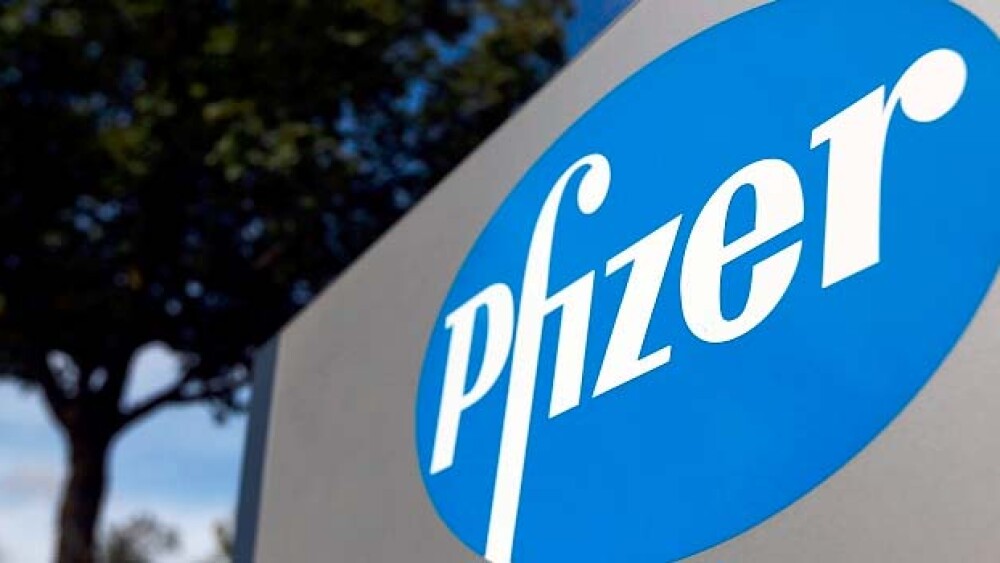The year is already off to a good start with mergers and acquisitions in the biopharma industry.
The year is already off to a good start with mergers and acquisitions in the biopharma industry. Celgene Corporation acquired Juno Therapeutics for $9 billion yesterday, and Sanofi bought Biogen spinoff Bioverativ for $11.6 billion. With a decreased corporate rate and a lower-taxed rate for offshore fund repatriation, most expect 2018 to be a big year for mergers and acquisitions. With that in mind, Keith Speights, writing for The Motley Fool, speculates on whether—and who—one of the Big Daddies of buyouts, Pfizer, might buy this year.
After all, the company’s chief executive officer, Ian Read, said in November 2017 that the company would consider acquisitions even if the tax bill didn’t pass.
Biogen has three blockbuster multiple sclerosis (MS) drugs, a future powerhouse in Spinraza for spinal muscular atrophy, and an interesting—although high-risk—pipeline, with aducanumab for Alzheimer’s being both the potential superstar and potential super-flop. EvaluatePharma has dubbed aducanumab the most valuable pipeline candidate in the industry, and Goldman Sachs has projected, if approved, that it could generate $12 billion in sales. Alzheimer’s research is a wasteland of failed Phase III drugs, so aducanumab is definitely high-risk, high-reward.
Speights writes, “Biogen’s market cap currently stands at close to $72 billion. Pfizer would have to pay more than that to acquire the biotech, of course. However, company executives have maintained that they’re ‘agnostic to size.’ Pfizer’s history shows that they’re probably telling the truth.”
Acquiring Bristol-Myers Squibb would definitely bolster Pfizer’s oncology portfolio. Opdivo is the strongest arrow in Bristol-Myers’ quiver, but not the only one. But it’s one lucrative arrow—sales for 2017 are expected to have hit $5 billion, and by 2022, are projected to close in on $10 billion. It also has Yervoy, which along with Opdivo, is being evaluated in numerous combinations with other companies’ drugs in clinical trials. Speights thinks the combination of Opdivo and Bristol-Myers’ LAG-3 inhibitor relatlimab is one of the most promising combo immunotherapies out there.
“Bristol-Myers Squibb would be more expensive than Biogen, though,” he writes. “The big pharma company is currently valued at a little over $100 billion. Pfizer also already has a PD-1 inhibitor, Bavencio, through its partnership with German pharma Merck KGaA.”
Back in 2016, Pfizer bailed out on its attempt to acquire Allergan after the Obama Treasury Department revamped some of its guidelines regarding tax-inversion deals. But Trump recently signed an executive order that instructs the Treasury Department to review tax regulations made since the beginning of 2016 and make recommendations on changing or repealing anything that might be overly complex or burdensome.
Bob Willens, an analyst and former managing director of Lehman Brothers, told TheStreet, “Maybe Pfizer would go back with Allergan. I’m sure they still want to do the deal, and the only thing that’s prevented it is those regulations.”
If Pfizer could work the deal again, assuming Allergan is still interested, Pfizer would pick up Botox, among many other strong products and an even stronger pipeline. Allergan has more than 55 programs. Twenty-one of those programs fall into the aesthetics and dermatology market, but one of its most promising is abicipar for wet age-related macular disease.
Speights writes, “The biggest plus for buying Allergan? It’s relatively cheap. Shares trade at less than 12 times expected earnings with the company’s market cap currently around $60 billion. The downside? For one thing, the tax advantages aren’t there with U.S. tax reform in place. Also, some of the candidates in Allergan’s pipeline are iffy. In particular, experimental non-alcoholic steatohepatitis (NASH) drug cenicriviroc had mixed results in a Phase II study.”
Speight’s best bet? Bristol-Myers Squibb. Pfizer and Bristol-Myers already partner on anticoagulant Eliquis and the Opdivo addition would be a huge incentive for an acquisition, and far less risky than betting on Biogen’s Alzheimer’s program.





